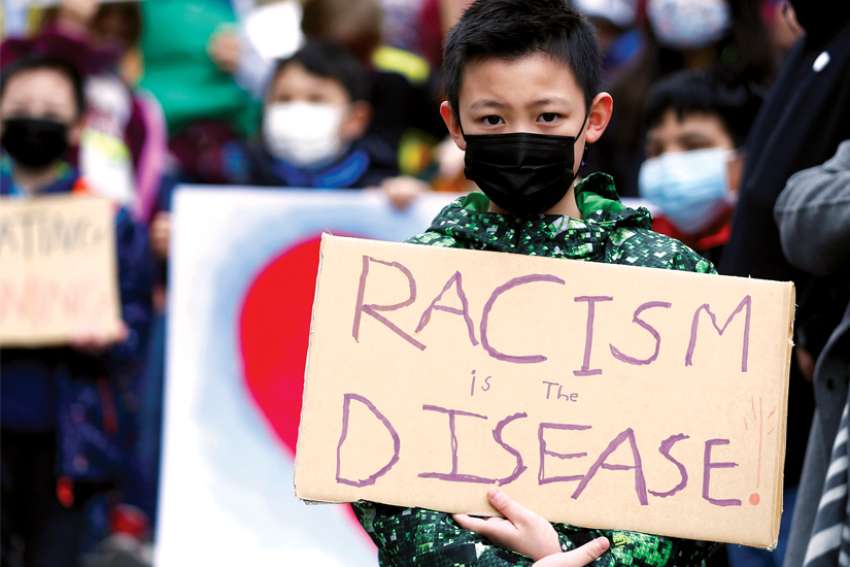“Conversations That Shape Us” uses biblical concepts to help church staff, congregations and small groups understand and respond to racism.
The document which was produced by The Evangelical Fellowship of Canada (EFC), the Canadian Bible Society, Canadian Christians for Justice and Mercy, and Cardus, features information, questions, quotes and Scripture references aimed to ignite meaningful dialogue and encourage inward reflection.
The resource is intended for use by Christians of all backgrounds and denominations. It is particularly helpful for those who have a genuine desire to engage in discourse on racism but are reluctant for fear they might say the wrong thing, says Joel Gordon, director of partnerships and ministry innovation at EFC.
Rooted in Scripture, he says, the aim is to equip leaders to navigate these conversations in God-honouring ways. Instead of running away from fears and discomfort, the resources encourage participants to sit in that discomfort through a process inspired by Scripture.
“If we’re not willing to do that initial work of looking inward and acknowledging our own stuff, how can we look toward systemic issues?” Gordon says. “How can we make the connection between the personal and the systemic if we’re not even willing to acknowledge our own personal biases? A document like this can really help, especially for Christians who have never had these conversations before in a Christian setting, and who find it uncomfortable to have these conversations.
“This resource that we’ve helped to shape really helps them enter into the conversation and enter into the discomfort, but to come out the other side enlightened and transformed and ready to go deeper and compelled to go deeper because they understand it is connected to their identity in Christ.”
Many are challenged to even say the word race or racism, or to understand the impact of systemic racism in society.
Helping individuals confront things they have believed and accepted as normal can be unsettling, which is why the process is grounded in Scripture. Rather than focusing on social injustice, the resource is centred around the issue of sin.
“There’s a journey of reconciliation that God invites people into, and that’s really important, being reconciled to God. There’s also the call in Scripture to be reconciled person-to-person or group-to-group. An important step in reconciliation is acknowledging wrongdoing and sin. Calling racism sin and making that connection is important. If you don’t acknowledge something, you cannot then move on to confess that sin. If you haven’t confessed to sin, you can’t move on to repent. If you haven’t repented, then you can’t turn and start to take action to move in the other direction in responding to wrong.”
Ignited by the global reckoning on racism that began in 2020, a small, diverse group of individuals came together to brainstorm resource ideas and choose some guiding Scripture passages that would anchor what they create. They held discussions around what might be important steps users might take as they enter into the conversation about race and racism.
The outline for the resources was created, and with the group’s permission Gordon brought it to the EFC. It called on various consultants, including pastors, church leaders and academics in Canada, to come alongside the project to bring it to fruition.
The uncovering of unmarked graves at former residential schools and its connections to the Church in Canada has caused many to take a closer look at the role of racism in the history of the nation and the Church in Canada. Acknowledging the role people of all backgrounds play in contributing to the injustices against Indigenous people is important. EFC and its partners will hold events and workshops for individuals who want to be better prepared to lead the conversations and navigate group discomfort.
To walk in right relationship with God and neighbours, Gordon says, people need to start with an acknowledgement of the good, the bad and the ugly of race and how everyone is directly connected to it.
“We need personal relationships and conversations where trust can be built and where we can try to have brave spaces to both talk and listen deeply,” said Rev. Dr. Timothy Li-Hui Tang, director of Tyndale University’s Intercultural Ministries Centre. “This is a timely resource to get the conversation started on a road where we all have a long way yet to journey.”
The conversations guide is available online, along with a video on understanding the concept of race, at www.TheEFC.ca/Racism.


